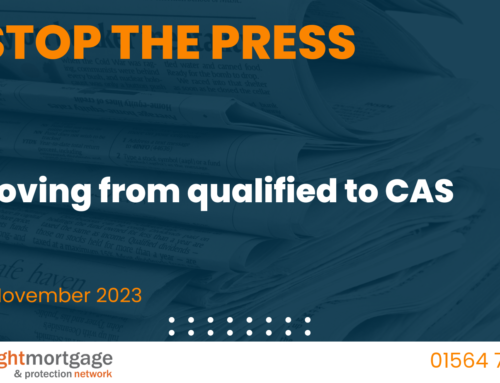This week I want to start off by talking about the legislation that impacts us on every transaction within financial services. Not the most exciting subject, granted, but there is some good news later on, so keep on reading!
The Proceeds of Crime Act 2002 imposes criminal sanctions on anyone who commits an offence of money laundering, tipping off or prejudicing an investigation. Financial services businesses – including mortgage and protection brokerages – must:
- undertake education, regular training & competency assessment
- have up to date procedures for identifying and preventing money laundering
- confirm the identity of their clients (records to be kept for at least 5 years after the end of their client relationship)
- have a suitably senior Money Laundering Officer (MLO)
- report suspicious transactions & avoiding tipping off
In addition, lenders are also required to check and receive evidence of the source of any funds deposited with them, including deposits received in connection with property purchases, which means that as a broker you must co-operate and comply with the lender’s specific requirements on evidence of deposit.
You will recall that my last update, two weeks ago, focussed on the Suspicious Activity Reporting (SAR) requirements and what to do when you come across a suspicious transaction or customer. If you didn’t get a chance to read that, then please do now.
As a network, we are committed to ensuring that our members have the knowledge and processes to undertake their responsibilities, which is why we have annual competency checking on subjects like anti-money laundering.
This week I wanted to focus on the process of completing identity checks on customers. I also want to introduce the Network’s preferred electronic ID solution for use in non-face to face transactions (or as an additional check where you are suspicious about the true identity of the customer).
For protection/insurance only customers there is no specific requirement to identify the customer where the premium is being paid from the customer’s own bank account, as was detailed a few weeks back.
However, for all other (lending) transactions you are required to positively identify the customer by means of a passport, driving licence or other suitable identity document and to also verify the customers confirmed residential address, which would be done by sight of a utility bill, bank statement, mortgage statement or another suitable document. (See the ID requirements on the Adviser Site).
We recognise that, for non-face to face transactions, customers can be reluctant to send their ID documents in the post. I can’t blame them, nor would I. This is why we have undertaken research into the market of Electronic Identity Verification (EIV) providers to select a single provider that we are happy to endorse, which provides a cost effective but robust solution for our members.
We have looked at a several prominent suppliers of EIV and compared them on a number of variables, such as ease of use, speed of process, robust and reliable verification output, cost, additional features, etc., and we are happy to conclude that Sanctions Search (www.sanctionssearch.com) is our preferred supplier of EIV going forward.
Sanctions Search complies with Joint Money Laundering Steering Group (JMLSG) guidelines and offers verification of passport, drivers licence or other ID from reference numbers as well as live bank account checking. Membership is £20 plus VAT per annum with individual, enhanced searches charged at £1.90 plus VAT. Additional features include politically exposed persons and sanctions list checking, management information at no extra cost and a 98% success rate.
We are just in the process of concluding final arrangements with Sanctions Search and we will communicate the details of how you register, how to use the system and any changes to the sales and record keeping processes to you shortly.
For now, it is important to remember the obligation that you have to identify your customer. Failure to do so is a criminal offence. Customer records should clearly show the evidence obtained and a clear copy of the document should be uploaded. You should have seen the original and the document should be signed as a copy of the original. Where original documents are not available, then EIV checks could take place through the Sanctions Search system. Further details to follow.





